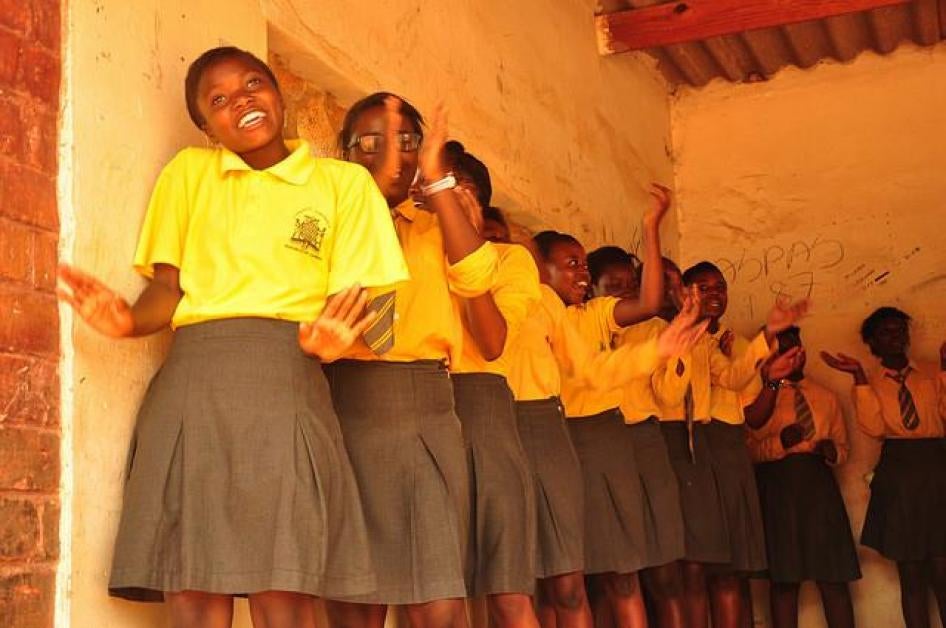Elizabeth is a vivacious secondary school student at Lusaka Girls School in Zambia. She has an infectious smile, but when she recounts what happened to one of her relatives her grin vanishes. Her relative “Alice” was married aged about 15, after her family could no longer afford to send her to school. “She had these dreams and aspirations and everything,” Elizabeth said sadly. “I put myself in that position and I think it’s not a good thing. So that’s why I’m speaking out.”
After seeing how early marriage forced Alice to abandon her ambitions, Elizabeth is working to ensure that other girls in her community do not face the same fate. She attends a girl’s empowerment club run by Continuity Zambia, a local organization that promotes children’s health and development. Last February, Elizabeth and her classmates wrote, composed, and sung an “anthem to end child marriage.” “I know my rights,” Elizabeth said. “That’s why I’m speaking out.”
This year the global coalition Girls Not Brides – of which Human Rights Watch is a proud member – released a music video based on the anthem, and is joining students from Lusaka Girls School in a fresh bid an end to child marriage in Africa.
Human Rights Watch has documented the devastating effects of early marriage on the continent, in Malawi, South Sudan, Tanzania, and Zimbabwe. We consistently find that child marriage has dire life-long consequences for girls’ health, safety, education, and ability to realize their human rights. Zambia, where Elizabeth and her classmates live, has one of the world’s highest rates of child marriage – with a staggering 42 percent of girls married by age 18.
Without significant progress on this issue, the number of girls married as children is expected to double by 2050, and Africa will overtake South Asia as the region with the highest number of child brides in the world. African governments should urgently develop programs to prevent child marriage, starting with developing and enforcing laws that set 18 as the minimum marriage age.
Africa’s large population of people under 18 need to be protected from child marriage, but they are also a valuable resource to help end it. Programs like Continuity Zambia’s empowerment club – which are tailored to local communities and inform girls about the harms and illegality of child marriage – are critical in this fight.
Elizabeth and millions of girls like her can help end the scourge of early marriage. The first step is making sure they know their rights.










